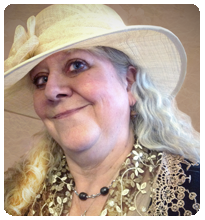 Delighted to welcome Helen Hollick back to give us some insight into series supporting characters. I know the value of them as I use them ruthlessly throughout the Roma Nova series! Delighted to welcome Helen Hollick back to give us some insight into series supporting characters. I know the value of them as I use them ruthlessly throughout the Roma Nova series!
Helen was first accepted for traditional publication in 1993 and became a USA Today Bestseller with her historical novel, The Forever Queen (titled A Hollow Crown in the UK) with the sequel, Harold the King (US: I Am The Chosen King) being novels that explore the events that led to the Battle of Hastings in 1066. Her Pendragon’s Banner Trilogy is a fifth-century version of the Arthurian legend, and she writes a nautical adventure/supernatural series, The Sea Witch Voyages. She has also branched out into the quick read novella, ‘Cosy Mystery’ genre with her Jan Christopher Murder Mysteries, set in the 1970s, with the first in the series, A Mirror Murder incorporating her own, often hilarious, memories of working as a library assistant. Her non-fiction books are Pirates: Truth and Tales and Life of A Smuggler.
Helen lives with her husband and daughter in an eighteenth-century farmhouse in North Devon, enjoys hosting author guests on her own blog ‘Let Us Talk Of Many Things’ and occasionally gets time to write…
Over to Helen!
So you’ve jumped into the realm of writing a series – it doesn’t matter what genre you write, historical, thriller/mystery, alternative, fantasy, romance… the principles are the same for all. Aside from the obvious requirement of a good plot, intriguing red herrings if it’s a mystery, and well researched background detail, you need one or two strong lead characters, usually a couple of some sort: husband and wife, or work colleagues (detective inspector and detective sergeant, maybe?). Mother and son, father and daughter, cousins… whatever you want as long as they are ‘good’ together as partners. This doesn’t mean they have to be friends – some of the best pairings in a series, be it for novels or TV, can start out being distinctly unfriendly towards each other, (although the reader will possibly guess that the two of them will probably end up as best mates, or even lovers.) What does matter is that these leading characters must be strong characters, with readily recognised passions and quirks, and an interesting background. Usually they are likeable people, although unlikeable ‘baddies’ are acceptable. The trick is to get your reader to become interested enough in your protagonists to want to know more about them… and then want more, and even more.
But there is more to a good story than just an engrossing plot, lots of action or romance, or whatever. A supporting cast is needed, and some of that cast will, perhaps, be required to make more than just an appearance in one book, so they need to be created as believably real as your main characters. You do run the risk of the sub-character becoming more popular than the lead though, so be warned! (I’m thinking Alan Rickman as the sheriff in Robin Hood Prince of Thieves, or Han Solo vs. Luke Skywalker in the Star Wars movies).
Thinking about a TV series when creating characters can help here. You need the familiar sergeant behind the desk in the police station, the grumpy boss, or the nosey neighbour, characters who only have small scenes to play but are essential to move the story along. They provide a counterbalance, or can be useful for dialogue exchanges, and yes, they are another recognisable person, and therefore give additional interest and entertainment for your readers.
In my Jan Christopher cosy (cozy – US spelling) mystery series I decided on using a few ‘regular’ supporting cast members. Young library assistant Jan Christopher and boyfriend Detective Constable (later Detective Sergeant) Lawrence (Laurie) Walker are my two lead characters, along with Laurie’s boss, who is also Jan’s Uncle – DCI Toby Christopher and his wife, Jan’s aunt, Madge. They appear in the first episode of the series, set in north-east London in the 1970s and titled A Mirror Murder. Part of my cast are a few background characters who will pop up occasionally in further episodes – certain other policemen and Jan’s library colleagues, for instance. Episode Two of the series A Mystery of Murder, saw Jan and Laurie spending Christmas with his parents down in Devon, but cunningly I also brought Uncle Toby and Aunt Madge into the story, along with a few personalities from the village. Farmer Ralph Greenslade was only mentioned, but he was to play a bigger part in a future episode (#4 A Meadow Murder) and shopkeeper Heather, who will appear in most of the Devon-based mysteries because she is a useful character to boost the plot and to smuggle in those essential red herrings!
In A Meadow Murder, I’ve also introduced the Exeter Inn landlord, Steve and his wife Hazel – they will appear again, as will cheeky Mary-Anne, a child who is often where she is not meant to be. I will add that Heather, Steve and Hazel are real people from my village, my dear friends in fact. They are written as fictional characters but included with their full permission. They are, of course, 100% ‘goodies’, and I’ve promised that they will not end up as murder victims! (Well, unless they upset me, that is! *laugh*)
That is one area where, as authors, we can have complete control over a storyline. In a TV series you can usually guarantee that an appearance by a well-known actor as a guest character will probably never be seen again. In our books, character X can appear as often as we want him or her to appear. Until we decide to kill them off, of course. Fortunately, as authors inventing our own fictional world with its events and characters we are in charge and can do what we want. Except, think carefully about killing off a regular secondary character – you might be surprised at how fond of him or her your readers have become!
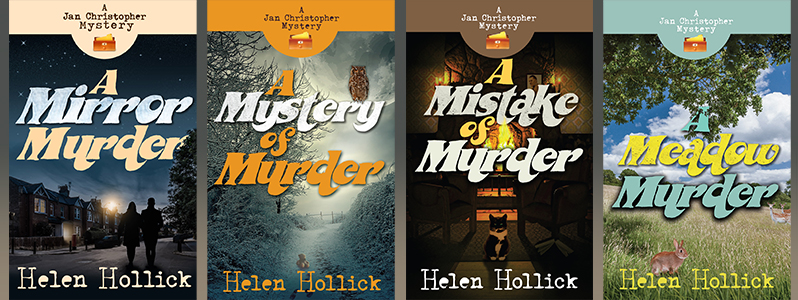
A bit of background to A Meadow Murder
A Meadow Murder is the fourth tale in the Jan Christopher cosy murder mystery series, the first three being A Mirror Murder, A Mystery of Murder and A Mistake of Murder… see what I’ve done there? Yes, I’ve created a proper puzzle for myself because now every tale in the series will have to follow the same title pattern of ‘A M-something- of Murder’ (Suggestions welcome!)
Based on when I worked as a library assistant during the 1970s, the mysteries alternate between the location of Chingford, north-east London, where the real library used to be, (the building is still there, but is, alas, now offices) and my own North Devon village, but slightly fictionalised. Chappletawton is much larger than my rural community, and has far more quirky characters, (and we haven’t had any real murders!)
The main characters, however, remain the same: Jan Christopher is the niece, and ward, of Detective Chief Inspector Toby Christopher and his wife, her Aunt Madge. In A Mirror Murder, Jan (short for January, a name she hates) meets her uncle’s new driver, Detective Constable Lawrence Walker. Naturally, it is love at first sight…
I had the idea for A Meadow Murder during the summer of 2022, while watching our top meadow being cut for hay. The cover photograph is my field – a real Devonshire hay meadow.
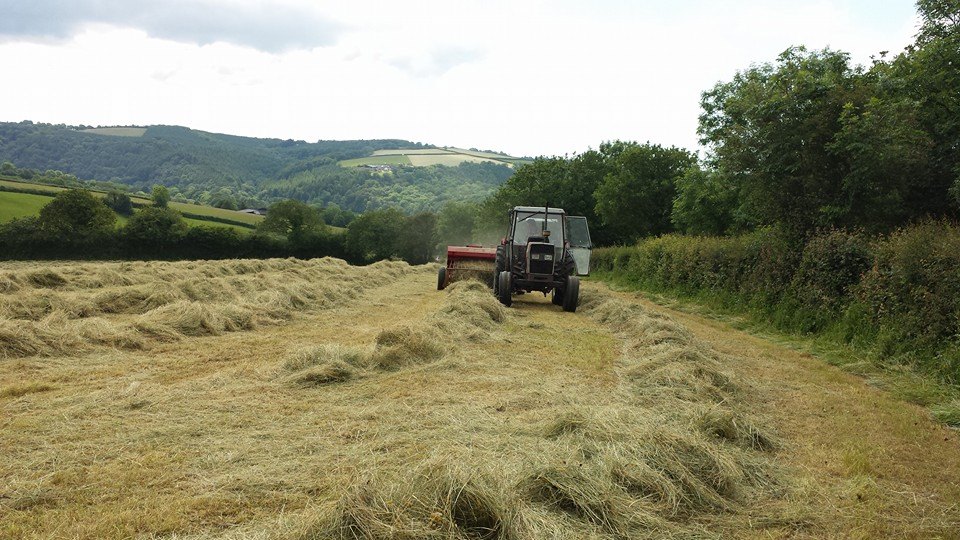 Making hay. (It’s a great scene in the book!) A short extract from A Meadow Murder…
The shop door was propped open to let in a breeze on this hot afternoon. Inside, Heather, the shopkeeper and postmistress, was standing behind the counter looking somewhat frazzled. She flicked back a lock of damp, blonde hair from her forehead and puffed her cheeks as we walked in.
“Oh, it’s only you young Laurie, and you Jan dear. I thought it was those pesky children or Dotty Dorothy come back again. Did you not see her? She’s only just left. Driven me barking with her silliness.”
Laurie laughed. I looked blank.
“Mrs Dorothy Clack,” Laurie explained. “Lives in Meadow View, the first cottage as you come into the village. Her husband is a salesman of some sort, rarely at home. She’s a sweet lady, but…”
Heather butted in. “But she is as dotty as a polka-dot bikini. It isn’t surprising that her other half is rarely here with her. Quiet chap, I’ve only seen him once or twice since they moved here a few years ago. It’s my opinion that he’s got someone else on the side, if you know what I mean. Can’t say as I blame him, Dorothy must drive him up the wall. Yesterday, she was certain that George Dill’s scarecrow was following her around the village. Didn’t matter how many times I told her that George moves the thing about in an attempt to keep the crows from his crop. Now, she’s adamant that she’s seen a leprechaun in Windfall Woods. I quote: ‘A little man, sitting on a log.’ He apparently took one look at her, jumped up, shouted, ‘Begorrah!’ and disappeared.”
“Well, it is a lovely public footpath through those woods,” Laurie said, still laughing, “though she’s more likely to meet a poacher, not a leprechaun.”
“I don’t suppose you came up that way? Saw anything odd?” Heather queried. “Just in case it was a poacher hanging around? I’ve no objection to anyone taking a rabbit or pheasant for the supper table, or farmers keeping the foxes at bay, but shooting the deer this time of year when the does have fawns at foot? If I ever caught anyone, I’d shoot them myself.” She paused, grinned. “The poachers I mean, not the deer.”
Laurie advised that that wouldn’t be a good idea, and asked for two packets of tea, which Heather fetched. He added, “We walked up the lane, not through the woods, but we can go back that way.”
I selected some picture postcards of views of Exmoor and pretty thatched cottages with various straw figures decorating the ridges, such as hares, pheasants, geese and foxes, and followed Heather as she went to the post office counter to get the stamps to go with them. I was fiddling with my shoulder bag to get my purse out when a shadow blotted the light from the open door. I paid my money and Heather, noticing the newcomer, dramatically rolled her eyes. I put the stamps and cards in my bag and turned to see who had come in…
___________
How you can get hold of your copy
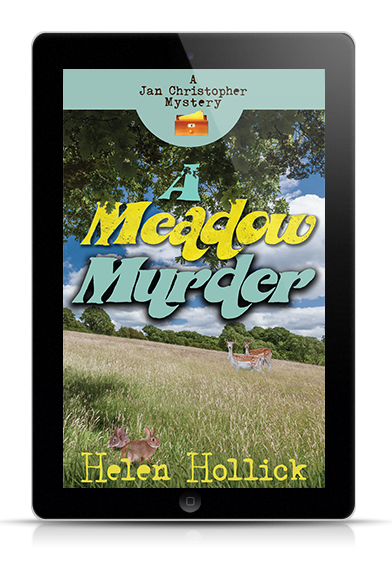 Make hay while the sun shines? But what happens when a murder is discovered, and country life is disrupted? Make hay while the sun shines? But what happens when a murder is discovered, and country life is disrupted?
Summer 1972. Young library assistant Jan Christopher and her fiancé, DS Lawrence Walker, are on holiday in North Devon. There are country walks and a day at the races to enjoy, along with Sunday lunch at the village pub, and the hay to help bring in for the neighbouring farmer.
But when a body is found the holiday plans are to change into an investigation of murder, hampered by a resting actor, a woman convinced she’s met a leprechaun and a scarecrow on walkabout…
Available as a paperback and e-book, including Kindle Unlimited
Amazon Universal Link: this link should take you direct to your own local Amazon online store https://mybook.to/AMeadowMurder
Order the paperback from any reliable bookstore
My review
Jan Christopher and her fiancé Laurie are on holiday in Devon, staying with Laurie’s parents, But it seems that murder cannot leave them alone. Apart from a delightful mystery, the outstanding thing that a reader finds in all the Murder novels by Helen Hollick is the attention to detail. Every sentence pulls you back into the early 1970s with a mixture of feelings – nostalgia for a simpler life vs. the more communication and information focused time today; the Big Smoke vs. the slower, cleaner country life. A touch of The Darling Buds of May, only not Kent, but Devon.
But the author doesn’t shy away from her characters. Each is well drawn and each has his or her distinctive voice, strengths and foibles. The countryside itself is a character and Hollick imbues it with plenty of emotion, whether a striking sunset or a delicious pie in the pub.
The denouement is very satisfactory, although tinged with sadness. We cannot but feel sympathy. If you enjoy a cozy mystery, but one with great understanding of the human condition, treat yourself to this.
___________
Connect with Helen
Website: https://helenhollick.net
Subscribe to her Newsletter: https://tinyletter.com/HelenHollick
Main Blog: https://ofhistoryandkings.blogspot.com/
Facebook: https://www.facebook.com/helen.hollick
Twitter: @HelenHollick https://twitter.com/HelenHollick
Alison Morton is the author of Roma Nova thrillers – INCEPTIO, CARINA (novella), PERFIDITAS, SUCCESSIO, AURELIA, NEXUS (novella), INSURRECTIO and RETALIO, and ROMA NOVA EXTRA, a collection of short stories. Audiobooks are available for four of the series.Double Identity, a contemporary conspiracy, starts a new series of thrillers. JULIA PRIMA, a new Roma Nova story set in the late 4th century, is now out.
Find out more about Roma Nova, its origins, stories and heroines and taste world the latest contemporary thriller Double Identity… Download ‘Welcome to Alison Morton’s Thriller Worlds’, a FREE eBook, as a thank you gift when you sign up to Alison’s monthly email update. You’ll also be among the first to know about news and book progress before everybody else, and take part in giveaways.
If you enjoyed this post, do share it with your friends!Like this:Like Loading...
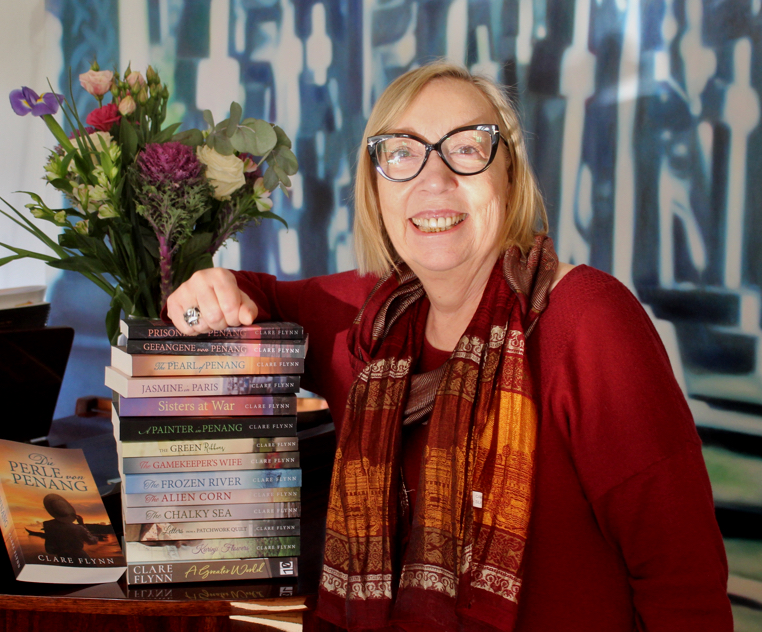 I’m delighted to welcome Clare Flynn back to the writing blog on the occasion of her (rather wonderful) new novel The Colour Of Glass. Clare Flynn is a well-established author – fifteen historical novels and a collection of short stories. I’m delighted to welcome Clare Flynn back to the writing blog on the occasion of her (rather wonderful) new novel The Colour Of Glass. Clare Flynn is a well-established author – fifteen historical novels and a collection of short stories.
Having lived and worked in London, Paris, Brussels, Milan and Sydney, her home is now on the coast, in Sussex, England, where she can watch the sea from her windows. An avid traveller, her books are often set in exotic locations.
Clare is also a Fellow of the Royal Society of Arts, a member of the Society of Authors, the Alliance of Independent Authors, the Historical Novel Society and the Romantic Novelists Association. When not writing, she loves to read, quilt, paint and play the piano.
First of all, congratulations on your new book, The Colour of Glass. I confess I had only been a general admirer of beautiful windows, ancient and modern, but found your book a fascinating insight into the craft of how they are created. Can you tell the readers what glass painting is, and what the difference between enamelled glass and stained glass?
Thanks, Alison. I’m so pleased you enjoyed the book!
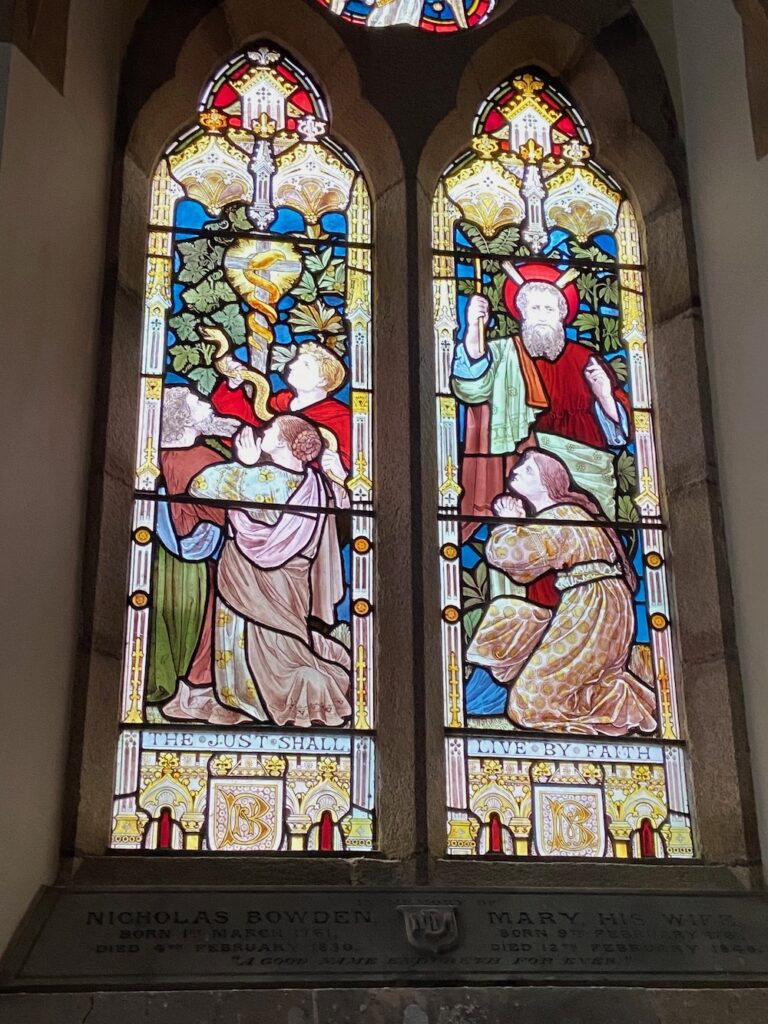 Marazion, Cornwall Until I started researching the book, like my character, Alice, I’d assumed stained glass was a kind of collage of bits of coloured glass leaded together. It simply hadn’t occurred to me that the best examples of stained glass art involve painting onto the glass which is then fired to fuse the paint to the glass.
The combination of different types, textures and colours of glasses, different paints and painting techniques, the use of acid to etch the glass or eat away part of the colour, make it a fascinating process.
To be honest the demarcation (if any) between enamelled glass and stained glass is beyond my personal level of expertise as there is much overlap in terminology and techniques. I imagine you have in mind the kind of enamelling the Romans did? If so, I guess that was mostly the use of vitreous enamel to decorate objects such as bowls and vases as opposed to sheets of glass which allow light to pass through as in stained glass windows. Stained glass for that reason is translucent whereas enamelled objects don’t have to be.
A reviewer on Goodreads said about The Colour of Glass: “Clare Flynn’s books are always worth reading and this one was no exception.” What themes bind your books together?
I try to ensure my books have a very strong sense of place. Many of them are set in exotic locations – but that’s not the case with The Colour of Glass which is set in London and a Hampshire village. Nonetheless I work hard to make the time and place come to life and make the story as visual as possible. Readers often say they feel they are actually there.
Another key element is character. This always comes before plot for me. I like to give my characters a hard time and see how they cope.
There are of course other thematic aspects – usually a background of world events of some sort – often wars or their aftermaths. In the case of The Colour of Glass, the period is in the years before the First World War and the struggle for women’s suffrage.
But I suppose most important is that I work very hard to create a story that has momentum. Readers often complain that they don’t get much sleep when they read my books as they have to keep on turning those pages!
Many of your books are set in the 20th century, especially the Second World War. What attracts you to the modern historical period? Have you ever considered writing in other periods?
All my books – with the exception of Letters from a Patchwork Quilt which is late Victorian – are 20th Century. I’ve written a few contemporary short stories but I love writing 20th C. I suppose it’s because I feel connected to it having been born in the middle of it!
I wouldn’t rule out other periods but right now I have so many ideas in waiting that I doubt I’ll get around to other eras! I could never do what you do and tackle the Romans for example as I simply don’t know enough!
 Stained glass window by Harry Clarke Alice and Edmund are difficult and vulnerable characters, hemmed in by Victorian ‘duty’, yet we are drawn to them as they strive to define themselves in a period of immense change. How do you go about developing such complex characters?
It’s not a conscious thing. I don’t create character profiles. I just let them evolve on the page then chuck problems at them and see how they cope with them.
It’s important not to let 21st century attitudes and mores drive them but I don’t want to create characters who are as obedient and submissive as society often expected young people to be then, especially women. It’s therefore a fine balance between what is possible/probable in those times and creating characters who push against those norms.
What is the hardest part of writing?
Doing it when you feel uninspired or ‘stuck”. It’s always easy to leave it for another day. Sometimes I let myself have time off – when the inspiration doesn’t flow it’s often a sign that my brain needs what I call “mulling time”. Even subconsciously, the brain is processing ideas and information. I have learnt enough about myself not to try and force things. But after a while I have to drag myself by the scruff of the neck back to my desk or I’ll find it hard to get back into the world of the story.
My top tip for this is even if I can’t write for a few days, to stay engaged with my work in progress by reading back through what I’ve written so far, or diving off into some research. Often the research puts an idea in my head that gets the wheels in motion again.
What was the one thing which has been most helpful in improving your writing? E.g. tip, technique, course, practice, mentor, or was it a pivotal conversation?
Probably doing a self-editing course taught by Debi Alper and Emma Darwin back in 2012. Debi has since become my editor and I have learnt and continue to learn so much from her.
Otherwise, I believe I owe most of my writing success to the happy fact that my parents encouraged me to read from as soon as I could hold a book . When I was small they chose to live in places where there was nothing for me to do except read! They never censored my reading – so by the time I was in my teens I’d read most of the classics along with everything I could lay my hands on from Agatha Christie and Enid Blyton to Tolstoy, Fitzgerald and The Valley of the Dolls. It absolutely horrifies me when I hear wannabe authors say they have no time to read as they’re too busy writing. How can you develop your own voice if haven’t been exposed to others?
Finally, are you developing a sequel to Alice and Edmund? (I hope so!)
I am! No spoilers!
_________
Find out more about Clare
Web/blogsite: https://clareflynn.co.uk
FB author page: https://facebook.com/authorclareflynn
Twitter: https://twitter.com/clarefly @clarefly
IG: https://instagram.com/clarefly
_________
What’s The Colour of Glass about?
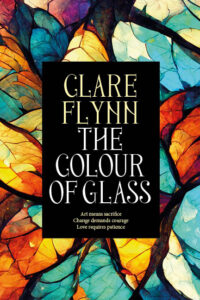 She’s dutiful. He’s defiant. Each knows what they want. Neither knows what they need. She’s dutiful. He’s defiant. Each knows what they want. Neither knows what they need.
England, 1908. Alice Dalton bows to the will of her aristocrat parents and agrees to marry the elder son of a wealthy stockbroker to bolster the failing family finances. But on the morning of her engagement, Alice confronts a shocking betrayal by her fiancé that ends in a heartbreaking tragedy.
His younger brother, Edmund, an up-and-coming stained glass artist is driven by passion for his art and love for a fellow student. His domineering father has other plans, demanding Edmund takes his brother’s place and marries Alice.
Alice, tired of being used as a pawn, turns to the women’s suffrage movement. And Edmund, torn between duty and emotion, chooses to follow his heart.
Can Alice and Edmund each find fulfilment in a world where duty, money and class jeopardise their dreams?
Click here to read on Kindle Unlimited: https://mybook.to/glass
Alison Morton is the author of Roma Nova thrillers – INCEPTIO, CARINA (novella), PERFIDITAS, SUCCESSIO, AURELIA, NEXUS (novella), INSURRECTIO and RETALIO, and ROMA NOVA EXTRA, a collection of short stories. Audiobooks are available for four of the series.Double Identity, a contemporary conspiracy, starts a new series of thrillers. JULIA PRIMA, a new Roma Nova story set in the late 4th century, is now out.
Find out more about Roma Nova, its origins, stories and heroines and taste world the latest contemporary thriller Double Identity… Download ‘Welcome to Alison Morton’s Thriller Worlds’, a FREE eBook, as a thank you gift when you sign up to Alison’s monthly email update. You’ll also be among the first to know about news and book progress before everybody else, and take part in giveaways.
If you enjoyed this post, do share it with your friends!Like this:Like Loading...
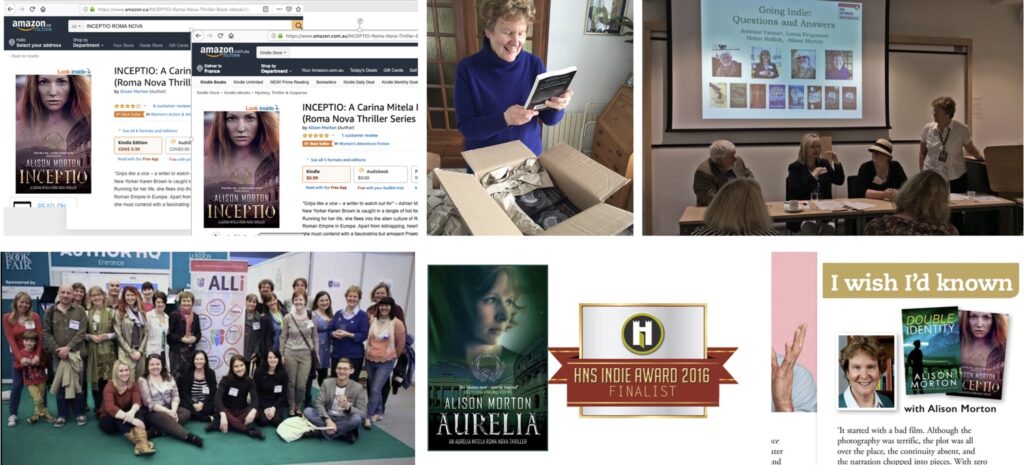
A ‘successful author’ – what does that mean?
Selling gazillions of books and getting an orange Bestseller label on Amazon?
Selling gazillions of books with only 8% of the proceeds but with the backing of a big publisher?
Running your own writing and publishing business – the mistress (or master) of your own universe?
Getting a three-book contract?
‘Bagging’ an agent?
Asked to contribute to a writing magazine?
Opening your first box of books?
Being invited to speak at a writing conference or give a library or bookshop talk?
Fifty 5-star reviews on Amazon?
Recognition by your fellow writers as a giver and collaborator?
Recognition in a literary magazine?
Getting the story you’ve been itching to write into print?
Fulfilling a life dream?
Earning your first £100 /$100 payment from a book retailer?
Reaching a six-figure income?
Setting up your own printing imprint or company?
Being a social media book star?
Many writers are shy creatures and say they just want to write and that any of the above would be ‘nice’. Many are thrilled to hold the first book out of the box that arrived at the front door. They hug the beautiful rectangle to their chest and close their eyes hardly believing that this book actually exists. (That’s me every time.)
If they sell ten books at a writing fair, they are very pleased. They’ve probably had a fulfilling day talking to the public about the book, its world, their writing journey and hearing about other people’s writing.
Others look at the height of the coloured bars on a retailer’s report and try to work out why ten books are marked as sold one week, none the next and thirty the following. But if the total reaches 100 units (ebook, print, audio, etc.) each month, they are happy. Others think only a 1,000 sold is a very poor month.
So here’s the crux of it: success means very different things to different people.
Some writers set out to make a living and possible more; others are pleased to have (or need) a bit of extra income. Some spend hours on social media and advertising platforms refining their marketing skills and aiming for high sales. Some writers write for fun or to interact with other like-minded people; others burn to get a message out. Some want to win the Booker prize; others are happy to be known as the spinner of a good yarn (and we’re not talking knitting here.)
Two things about success
Only you can know why you write. You may be happy to tell others a worldly reason and keep the real motivation a warm little secret inside you, or the other way round. (Many of us do this…)Thus, only you will know what success means for you. And you are captain of your own starship boldly going, so you are the only person able to measure that success.
Do NOT compare yourself with others
This is very bad for your mental health and can spoil the pleasure you get from your writing. It doesn’t matter if Freda Bloggs goes on about selling 3,000 books on publication day. Does she actually get more pleasure than you do from the twenty you sold? You might think so, but perhaps you sold those twenty to people you spoke to, people you know will treasure your book. Quite a lot of commercial success comes from previous books sales, a marketing department and a big advertising spend, but above all, luck. Their commercial success could be transient, while yours could be steady and perhaps longer lasting.
How to be successful
Work out what your goals are; they could be any from the list at the top of this post or something completely different. And when you achieve that goal, celebrate! Next, set another goal or milestone if you are setting out a path.
‘Sell lots of books’ is too vague; sell 200 books in six months is much better. ‘Win a book prize’ is similarly unspecific but send in an entry to ten competitions is much better.
And the good old favourite: write the next book. Readers like consistency and if they like one of your books, they’ll buy another. And another. Whether you’re after reviews and prizes, or book sales and chart rankings, this is the best way to make a mark towards your chosen goal.
Happy writing!
Alison Morton is the author of Roma Nova thrillers – INCEPTIO, CARINA (novella), PERFIDITAS, SUCCESSIO, AURELIA, NEXUS (novella), INSURRECTIO and RETALIO, and ROMA NOVA EXTRA, a collection of short stories. Audiobooks are available for four of the series.Double Identity, a contemporary conspiracy, starts a new series of thrillers. JULIA PRIMA, a new Roma Nova story set in the late 4th century, is now out.
Find out more about Roma Nova, its origins, stories and heroines and taste world the latest contemporary thriller Double Identity… Download ‘Welcome to Alison Morton’s Thriller Worlds’, a FREE eBook, as a thank you gift when you sign up to Alison’s monthly email update. You’ll also be among the first to know about news and book progress before everybody else, and take part in giveaways.
If you enjoyed this post, do share it with your friends!Like this:Like Loading...

Bookbloggers read, review and promote books in their spare time. They don’t get paid. They love reading and want to share that joy with others.
Delving into a new world, meeting enthralling characters, being chilled or thrilled, rooting for the protagonist, biting their fingers off, never mind the fingernails, or sighing with pleasure or regret at the story’s conclusion – we all do that as readers. But bookbloggers go and write their impressions and produce thoughtful reviews, some of them every day, others more than once a day. Next, they post the review on their blogs, to Amazon or other retailer, Goodreads then Tweet and post about it on Facebook and Instagram.
If you’ve written a book review yourself, you know it takes time. Most readers, for perfectly good reasons, never get round to writing them even for the books they love. Our bookbloggers do, consistently and continuously.
Let’s stamp on one myth of fake news
These generous people don’t get paid. Well, the reputable ones don’t. Yes, there are organisations who charge an admin fee or an express premium; these are a whole different thing. Then there are the sharks who blatantly charge for giving a 5-star review. Do not go there. Moving on…
The benefit for readers
A good book blogger will have a following which appreciates their dedication. These followers will be able to find out what to read next, what’s new, what’s not-so-new but so damn good you shouldn’t waste any more time in getting your hands on it. Bloggers’ thoughts may be subjective, but they are usually fair and honest thus giving their audience insight into books they might be considering buying. Today, bloggers review books published via any route and in different formats such as ebook and audio as well as paperback so readers are offered opinions on an ever widening choice of books.
Benefits for authors
Your book gets exposure to new audiences and if you’re a new author, you are introduced to the book market as well. It costs nothing except a little time and perhaps a book to give away in a prize draw. You may well gain reviews (and quotes) for your book. Although not the primary objective of a guest spot/review, you may nevertheless get sales. The golden advantage is that bookblogger audiences are automatically tuned in to wanting to know about books, i.e. a semi-captive market.
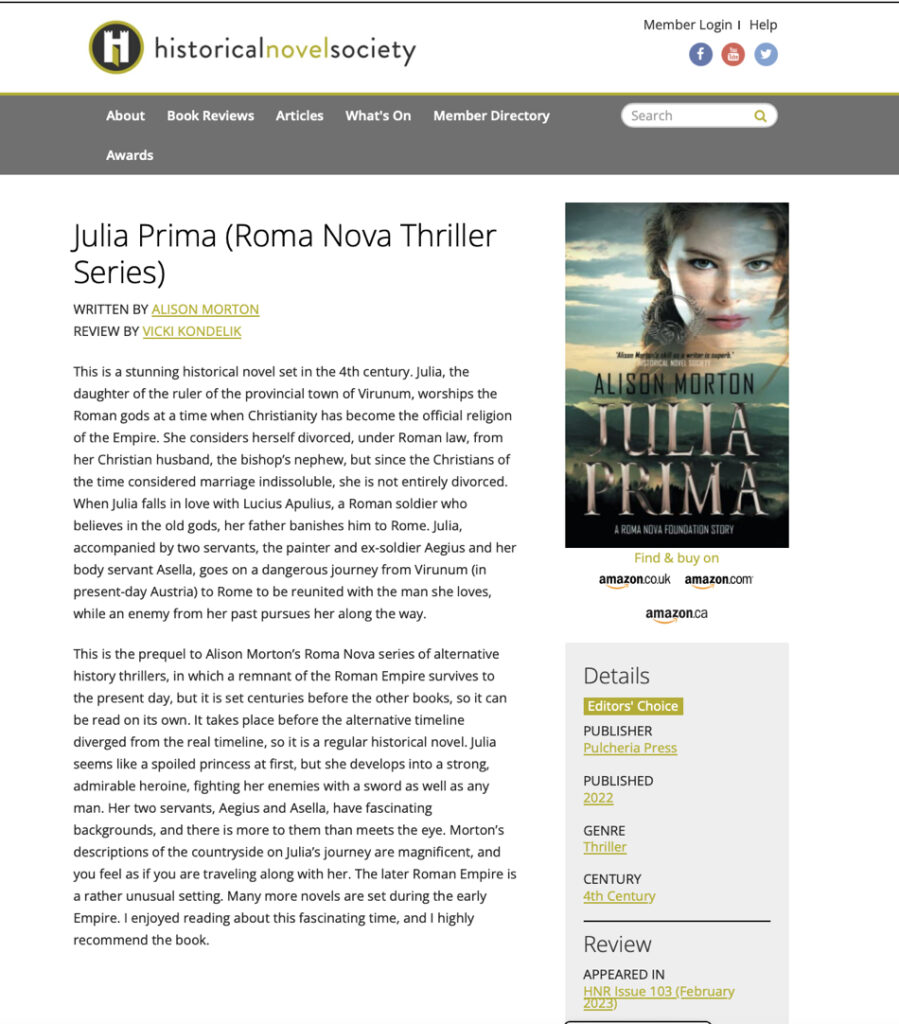
Back to our volunteer bloggers…
Some cover specific themes or genres such as historical, romance scifi/fantasy or crime; others have preferred types of books such as clean, steamy or non-violent. Some only review non-fiction. Do check this when thinking of approaching a blogger as this will save your time and theirs.
A few author dos and dont’s
- Check the blogger’s site to see if your book is relevant to their audience as well as the blogger’s taste. Read a few of the posts and comment or at least ‘Like’ them.
- Write a nice, but succinct email with a hook line, the blurb and possibly a couple of things about your publishing history. Most importantly, address the blogger by name. Apart from being unprofessional, it’s bloody rude to write ‘Dear Blogger’.
- Do not send the book until asked to, even an ebook. Also rude, as they get flooded out.
- If requested, send a good quality (hi res but not enormous) author photo, succinct bio, social media and buying links, book blurb and cover image in good time.
- Do not chase. I know it seems impolite, but it’s accepted now that if they don’t reply, it means ‘no thanks’.
- Remember they are not obliged to read your fabulous tome.
- Genuine bloggers try to be diplomatic and kind in their reviews, but be prepared for a few that are not completely raving about your book. Honesty is a hallmark of a good blogger.
- Unless there is a blatant/glaring and factual error, don’t challenge the review. It’s their subjective opinion. If you feel there is really something wrong, send a polite, unemotional private email explaining the inaccuracy. Otherwise, just move on.
- And thank them in the comments. Most bloggers will tell you when they are going to post the review so you should go back and check for their readers’ comments and questions.
- Post on your own social media with the URL to the reviewer’s original post. It’s not only good manners as they are making an effort for you, but it may also ease the way when you want to send them another book to review.
Be nice!
This was said to me many years ago by a marketing guru and it’s stood me in good stead. Bookbloggers don’t always feel appreciated by authors, which is self-defeating on the part of authors. Interacting with bookbloggers is all about the relationship.
Making friends with bookbloggers means not only being part of the book and publishing ecosystem, but also has the reward of being in the company of people who like nothing better than to be absorbed by and discuss every kind of book you can imagine.
Alison Morton is the author of Roma Nova thrillers – INCEPTIO, CARINA (novella), PERFIDITAS, SUCCESSIO, AURELIA, NEXUS (novella), INSURRECTIO and RETALIO, and ROMA NOVA EXTRA, a collection of short stories. Audiobooks are available for four of the series. Double Identity, a contemporary conspiracy, starts a new series of thrillers. JULIA PRIMA, Roma Nova story set in the late 4th century, starts the Foundation stories. The sequel, EXSILIUM, will be out on 27 February 2024.
Find out more about Roma Nova, its origins, stories and heroines and taste world the latest contemporary thriller Double Identity… Download ‘Welcome to Alison Morton’s Thriller Worlds’, a FREE eBook, as a thank you gift when you sign up to Alison’s monthly email update. You’ll also be among the first to know about news and book progress before everybody else, and take part in giveaways.
If you enjoyed this post, do share it with your friends!Like this:Like Loading...
 As a language nerd, certified translator and writer of fiction (and in a previous existence of proposals, reports, corporate documentation, advertising and PR copy), I’ve always been interested in the power of words. Tone, style and formality as important as context. As a language nerd, certified translator and writer of fiction (and in a previous existence of proposals, reports, corporate documentation, advertising and PR copy), I’ve always been interested in the power of words. Tone, style and formality as important as context.
Although multi-lingual, I write in my mother-tongue English, but when writing a story in a country where the residents speak a different language or other characters speak a different language, I drop in a few appropriate words of that foreign language. It can add to the flavour of the setting and/or to a character’s background.
However, there are many traps along the way. Overdoing it is one pitfall to avoid and using Google Translate is “The Big Don’t“.
Language traps
In French, we have several problems, one of which is the tu/vous conundrum. In English ‘you’ covers all relationships. If you want to go beyond the odd bonjour, au revoir and merci, for instance, for one character to ask if another has understood what the first one said, you need to know what the relationship is. There’s a world of difference between Tu piges? and Vous comprenez? It’s all about context!
The other things to watch are gender and verb conjugation. Dictionaries usually give the infinitive form of verbs or the singular form of nouns. Stringing them together and, in the case of German, using the correct article and adjective cases can be tricky. Even though Google Translate can provide a (rickety) translation of large chunks of text from a foreign language into English for information purposes, when going from English into another language like French, it doesn’t know its conditional from its coordinating conjunction.
When to use foreign language in your story
Above all, you want your readers to grasp what is being said. Nothing throws a reader out of a story like something baffling or jarring that leaves them wondering what just happened. If you stick to short expressions like greetings, or ma chére, mon ami, or s’il vous plaît, very few readers will feel lost. Instead, they may well be charmed.
One choice horror to avoid is inserting the English translation in brackets after the foreign language expression spoken by a character. I have seen it and I cringe. A good writer will find other ways to show what is meant either by the context or another character’s reaction or reflection on what was just said.
If it’s a moment of high drama where a French-speaking character would say something such as “Va-t-en!” and push the other person away, that second character can reply, “No, I’m staying right here until you tell me what’s going on.” The reader will understand from the context what the French words meant.
Swearing is the other place you can use foreign words. The context will convey the distress or anger of the character saying it, but the language will hopefully not upset readers as much as if the swearing was in plain English. Bon Dieu or Bon sang should hopefully not ruffle the sensibilities of religious believers as much as the counterpart words in English. In my modern contemporary thrillers written in English I can have my French-speaking ex-military special forces heroine under great stress say “putain” which conveys strength of feeling without English readers being upset by the f-word in black and white.
 Mercury in saving mode In my Roma Nova thrillers, my characters can swear by the various gods – “Oh, Mercury save us!”, or “Jupiter’s balls!” The worst is “Pluto in Tartarus”; both Tartarus and Pluto denote hell but Pluto is the darkest, deepest and most infernal hell and linguistically reinforces the strength of Tartarus.
The odd word or phrase in a foreign language adds a piquancy to the narrative, dialogue and atmosphere. But you should check with a mother-tongue speaker or professional translator that vocabulary, grammar and style are correct for the time and place of the story or your credibility as a competent author could be at stake.
Bonne chance! Viel Glück! Bona fortuna!
Alison Morton is the author of Roma Nova thrillers – INCEPTIO, CARINA (novella), PERFIDITAS, SUCCESSIO, AURELIA, NEXUS (novella), INSURRECTIO and RETALIO, and ROMA NOVA EXTRA, a collection of short stories. Audiobooks are available for four of the series.Double Identity, a contemporary conspiracy, starts a new series of thrillers. JULIA PRIMA, a new Roma Nova story set in the late 4th century, is now out.
Find out more about Roma Nova, its origins, stories and heroines and taste world the latest contemporary thriller Double Identity… Download ‘Welcome to Alison Morton’s Thriller Worlds’, a FREE eBook, as a thank you gift when you sign up to Alison’s monthly email update. You’ll also be among the first to know about news and book progress before everybody else, and take part in giveaways.
If you enjoyed this post, do share it with your friends!Like this:Like Loading...
|
Subscribe to Blog via Email
Join 51 other subscribers.
Categories
Archive
|
 Delighted to welcome Helen Hollick back to give us some insight into series supporting characters. I know the value of them as I use them ruthlessly throughout the Roma Nova series!
Delighted to welcome Helen Hollick back to give us some insight into series supporting characters. I know the value of them as I use them ruthlessly throughout the Roma Nova series! Make hay while the sun shines? But what happens when a murder is discovered, and country life is disrupted?
Make hay while the sun shines? But what happens when a murder is discovered, and country life is disrupted?






















